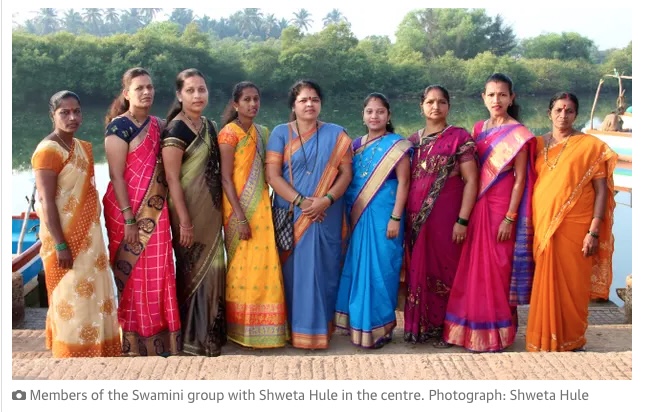INDIA, July 29, 2022 (The Guardian): On a hot summer afternoon along the Mandavi River, Shweta Hule wraps her sari around her ankles and bends to her foraging, picking wild weeds from the creek and dropping them into a bowl. The plants will be made into fritters, to be served at the little restaurant attached to the B&B Hule manages in the Indian coastal town of Vengurla. Wild edibles are common in kitchens here. Hule’s weed is sea purslane (Sesuvium portulacastrum) – known as khari or gole bhaji – a succulent that blooms with pink flowers and is found in mangrove forests. Harvesting some of the plant is helping conserve the mangroves, a globally endangered ecosystem of salt-tolerant trees that stop coastal erosion and absorb storm damage.
Hule is head of Swamini, a self-help group set up by nine women from this fishing community in Maharashtra who started Mandavi Eco Tourism in 2017. They came up with the idea of running mangrove safaris for tourists in Vengurla’s Mandavi creek. And now, as they research their own community’s history, they are rediscovering the edible wild plants around them. Vengurla, in the Sindhudurg district of the west Indian state, is known for its beautiful beaches and seafood, but the climate crisis has made fishing for a living unsustainable, so people are trying to find other sources of income. Swamini has won financial support from the Mangrove Cell, a section of the Maharashtra state forestry department, and the UN Development Programme. The women have been working to rediscover local knowledge about biodiversity, bird and marine life, as well as conservation of mangroves, so they can act as tourist guides.
More at source.
https://www.theguardian.com/global-development/2022/jul/29/women-save-india-mangroves-foraging-eco-tours
A daily summary of world news for Hindus and non-Hindus alike

